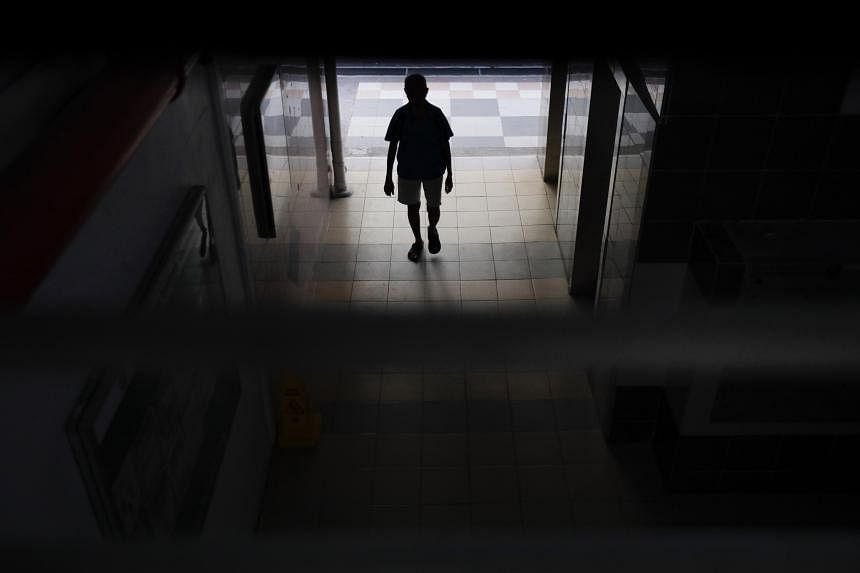SINGAPORE – Amid greater awareness of mental health issues and demand for help in this area, the Community Chest has increased funding for critical programmes to support people with mental health conditions, including counselling and suicide intervention services.
The Community Chest, the National Council of Social Service’s (NCSS) fund-raising arm, has allocated $10.4 million to support 10 mental health programmes in its current financial year, which ends in March 2024.
This is an 18 per cent increase from its last financial year, when $8.8 million was given to mental health programmes that were used by more than 13,000 people.
The NCSS’ group director of philanthropy and engagement Charmaine Leung said the larger sum allocated comes amid a greater awareness of and support for people with mental health conditions.
Ms Leung, who spoke to The Straits Times ahead of World Mental Health Day on Oct 10, added: “These will meet the critical mental health needs such as addressing the increase in suicide rates and supporting the work of the Interagency Taskforce on Mental Health and Well-being Employment Support Workgroup.”
On Thursday, the task force launched the National Mental Health and Well-Being Strategy.
More general practitioners will see patients with mental health conditions, and a residential facility for teenagers who are at risk of suicide will be set up, among the host of initiatives to improve and ramp up the provision of mental health services.
There were 476 suicides reported here in 2022 – a 26 per cent increase from the 378 people who took their own lives in 2021. The 2022 figures were also the highest in more than 20 years.
In the past three years, the Community Chest has increased funding by 53 per cent for the Samaritans of Singapore, a suicide prevention charity, Ms Leung said. The increase amounts to $1.34 million.
The Samaritans chief executive Gasper Tan said it plans to hire more staff and train more volunteers with the larger funds. This is needed as cases have shot up and are getting more complex.
For example, its 24-hour hotline received 57,400 calls in its financial year that ended in April, up 26 per cent from 45,700 two years before that.
The number of counselling sessions also increased by 23 per cent from 545 in its financial year that ended in April 2021 to 673 in its financial year that ended in April 2023.
Mr Tan said that suicide is a complex issue with multiple factors that could lead to the rise in cases, such as social isolation and the stigma surrounding mental health issues.
But from the calls and texts the Samaritans has received, family problems, employment and financial difficulties, and romantic relationships were the top three problems cited by people across all age groups.
“The pandemic may also have a long-tail effect which we are still seeing, not just in Singapore, but globally,” Mr Tan said.
“Social pressures, economic uncertainties and isolation can be major underlying causes of suicide deaths.”
The Community Chest has also increased funding by more than $220,000 for the Singapore Anglican Community Services’ (SACS) Integrated Employment Services, Ms Leung said.
She said the increase in funding has helped social service agencies build their manpower capability.
She added that the NCSS has also been supporting the Samaritans and the SACS through various capability development initiatives to boost organisational functions, especially in areas such as digitalisation of processes and volunteer management.
Mr Vincent Budihardjo, head of Integrated Employment Services at the SACS, said more funding from the Community Chest allows it to hire more staff with different professional skill sets, such as those with coaching experience.
In July 2023, the Integrated Employment Services introduced a new job coaching programme, which comprises over 10 weeks of job training, for those whose mental health conditions are more severe or who find it hard to rejoin the workforce and need more intensive preparation and training.
The Integrated Employment Services includes a five-week training programme to train those with mental health conditions, such as schizophrenia, anxiety and mood disorders, for employment. This includes giving them skills to manage stress, resolve conflicts and handle job interviews.
It also places them in jobs, including in the clerical, cleaning and food and beverage sectors, and provides them with counselling. It serves close to 550 people a year.
Mr Budihardjo said helping those with mental health conditions to find jobs and stay employed is critical in their recovery process as they build their self-worth and social network through work, on top of making a living.
He said the number of people the programme has placed in jobs rose from 200 in 2020 to 227 in 2022.
“There is increasing awareness and resources, plus greater empathy and receptiveness from society, towards persons afflicted with mental health concerns,” he added.
A former teacher who stopped working for about two years due to depression said attending the Integrated Employment Services programme has helped him to better manage his stress and depression, among other benefits.
Peter, as he wants to be known, is now working at the SACS, helping to run the Integrated Employment Services programmes he once attended.
The 46-year-old said: “From my bosses to my co-workers, it is a very supportive environment. I enjoy working here.”

